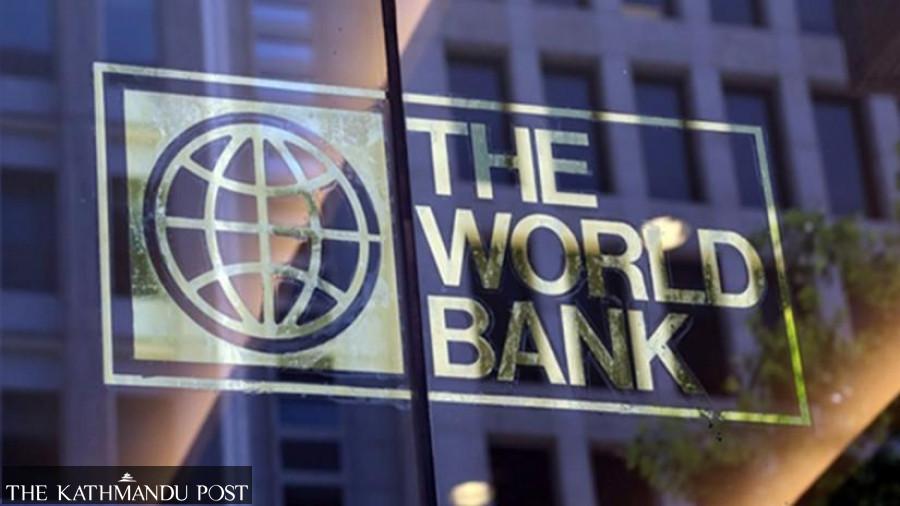National
World Bank launches Country Climate and Development Report
The GDP of Nepal is estimated to reduce by 7 percent in 2050 solely due to climate change.
Post Report
On Thursday, the World Bank released a Country Climate and Development Report (CCDR) of Nepal, the first of its kind in South Asia.
Keeping in mind the worsening impacts of climate change in Nepal, the report recommends four major areas in which Nepal should invest under the green resilient and development (GRID) framework.
The report is on the nexus between climate change and development in Nepal.
Firstly, improving systemic resilience of rural landscapes including food, freshwater and forest systems will be crucial to boosting adaptation, livelihoods and food security, says the report unveiled in Kathmandu.
“For this, increasing water storage, investing in climate smart agriculture and expanding community forest management will be important,” said Martin Raiser, regional vice-president of South Asia for the World Bank.
Secondly, harnessing Nepal’s significant hydropower opportunities as the means of clean and alternative energy is essential and third, managing urbanization and environmental quality to building resilience and improving health is of importance, says the report
Finally, the fourth pillar the report outlines is investing in low-carbon and resilient connectivity, particularly road networks, to improve Nepal’s growth and services.
In order to sustain progress in these four areas, the report outlines three key enablers: scaling up finance by partnering with private sectors, strengthening household and community resilience, and strengthening governance for climate change and disaster risk management.
According to World Bank estimates, the gross domestic product (GDP) of Nepal is estimated to reduce by 7 percent in 2050 solely due to climate change.
“The region will experience economic losses worth $160 billion every year due to climate change and it will need around,” said Raiser.
To tackle this, Nepal will need $7.3 billion from development partners to support this agenda for the next three years, he said.
In order to tackle climate change, Nepal should look into private financing and public investments by strengthening fiscal institutions and improving business environments in the country, said John Roome, regional director of the World Bank.
“Nepal should strongly advocate for climate financing but it also needs to be realistic that big cheques are not going to come in the short term, so it needs to prioritize climate investments,” said Roome.
According to government officials, this report provides critical support to managing climate change and implementing green, resilient and inclusive development (GRID) approaches in Nepal.
However, youth advocates and experts criticized the report for lacking in inclusivity and components of youth actions.
“From a social justice and climate justice framework, the report did not include community, gender and inequality based approaches,” said Radha Wagle, director general of the Department of Plant Resources at the Ministry of Forests and Environment.
Adding to Wagle’s comment, Sepideh Keyvanshad, mission director of the USAID said that it is of utmost importance to think about “who is sitting at these tables of decision making, who are making these economic trade-offs? Whose voices are heard and included? What does it mean to “leave no one behind?”




 18.12°C Kathmandu
18.12°C Kathmandu













